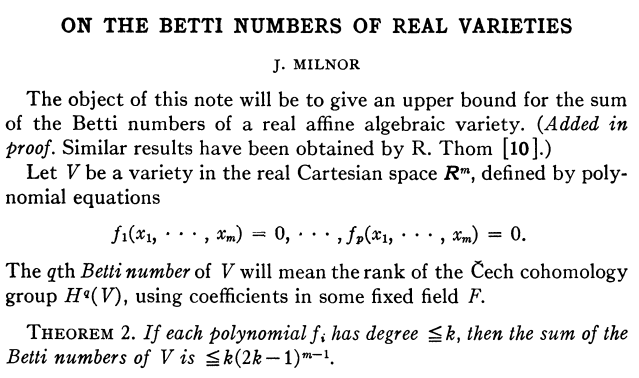I have a system $$f_1(x_1,\dots,x_m) = 0,...,f_p(x_1,\dots,x_m) = 0,$$ where $f_1,\dots,f_p$ are real polynomials and $x_1,\dots,x_m$ are real independent variables. I'm interested in an upper bound for the number of connected components of the zero set of my system.
I have the following argument using the Thom-Milnor but I'm unsure if it's correct. (The main problem is that I'm completely incompetent at algebraic topology.) Here is the theorem I want to use. 
So I have that the sum of Betti numbers is $\le k(2k-1)^{m-1}$. Now every Betti number is non-negative since it's a rank of some group and the $0$th Betti number $b_0$ is the number of the connected components. So we can conclude that the number of connected components of the zero set is $\le k(2k-1)^{m-1}$.
Is this a correct argument? In particular:
- there is a word variety in the formulation of the theorem. Does it imply that $f_1,\dots,f_p$ should be good in some way? There is this irreducibility condition in some definitions which would be a deal breaker I guess. Or this works for any $f_1,\dots,f_p$?
- Wikipedia says that $b_0$ is the number of connected components in simplicial complexes. Is this still true for our zero set?
